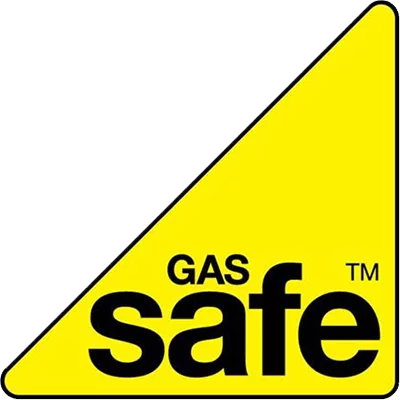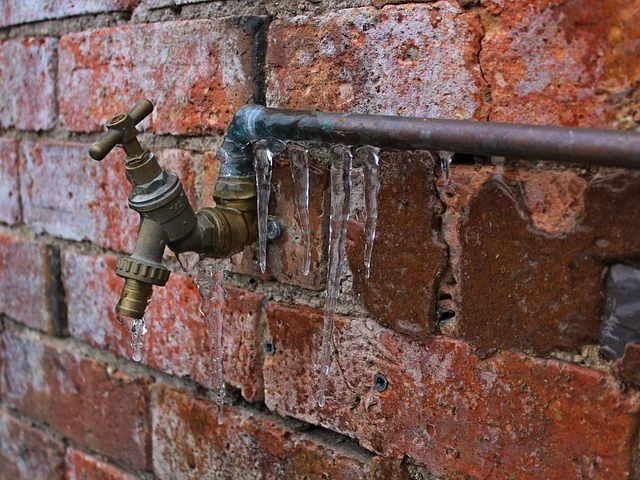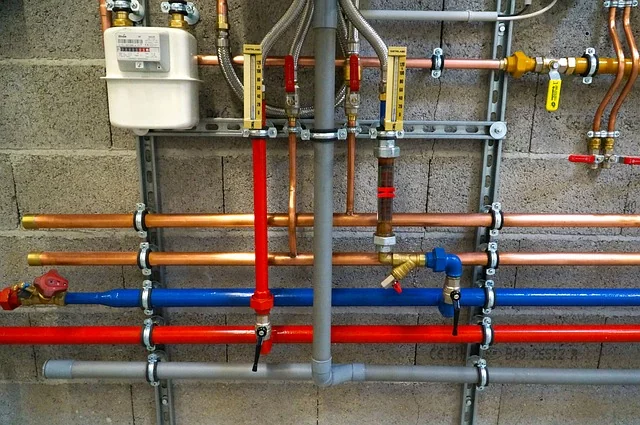Frozen pipes can be a major headache during the winter months. When temperatures drop below zero, the water inside your pipes can freeze and cause them to burst, leading to costly damage to your home. It’s important to take preventative measures to avoid this from happening, especially if you live in an area with harsh winters.
One of the most effective ways to prevent frozen pipes is to insulate them. This can be done using foam insulation sleeves or heat tape, which can be easily installed by a professional plumber. It’s also important to keep your home at a consistent temperature, even when you’re not there. This can be achieved by setting your thermostat to a minimum temperature of 12°C (55°F) and leaving cabinet doors open to allow warm air to circulate around your pipes.
If you do experience frozen pipes, it’s important to act quickly. Turn off your main water supply and open all the taps in your home to relieve pressure. You can then attempt to thaw the pipes using a hairdryer or hot water bottle, but it’s important to avoid using any open flames or electrical heaters as this can be dangerous. If you’re unsure how to thaw your pipes safely, it’s best to call a professional plumber who can help you get your home back up and running again.
Understanding Frozen Pipes
As the temperature drops, the risk of frozen pipes increases. Frozen or burst pipes can cause significant damage to your home and can be expensive to repair. Understanding the causes and signs of frozen pipes can help you prevent this problem from occurring.
Causes of Frozen Pipes
Frozen pipes occur when water inside the pipes freezes due to cold temperatures. Pipes that are exposed to cold air are more likely to freeze. This includes pipes in unheated areas of your home, such as the attic, basement, or garage. Pipes that are located outside of your home, or water pipes such as sprinkler lines, are also at risk.
Signs of Frozen Pipes
There are several warning signs that you may have frozen pipes. One of the most common signs is reduced water flow from your faucets. You may also notice gurgling sounds coming from your pipes. If you suspect that your pipes are frozen, turn off your main water supply and contact a professional plumber.
To prevent frozen pipes, make sure that all pipes in unheated areas of your home are properly insulated. You can also keep your home at a consistent temperature, even when you are away. If you are leaving your home for an extended period, consider turning off your main water supply and draining your pipes.
In conclusion, understanding the causes and signs of frozen pipes can help you prevent this problem from occurring in your home. By taking the necessary precautions, you can avoid costly repairs and keep your home safe and comfortable during the winter months.
Preventing Frozen Pipes
Frozen pipes can cause a lot of damage to your home and can be costly to repair. However, there are several steps you can take to prevent your pipes from freezing.
Insulation and Lagging
Insulating your pipes is one of the most effective ways to prevent them from freezing. You can use pipe insulation foam or lagging to wrap around your pipes, which will help to keep the heat in and prevent them from freezing. Make sure to insulate any pipes that are located in unheated areas, such as your loft or garage.
Maintaining Water Flow
Running water through your pipes can also help to prevent them from freezing. Even a small trickle of water can help to keep the water flowing and prevent it from freezing. You can also turn on your taps to allow a small amount of water to drip, which will help to keep the water moving and prevent the pipes from freezing.
Heating and Thermostat Settings
Make sure to keep your home heated to a minimum of 12°C to prevent your pipes from freezing. You can also set your thermostat to a constant temperature to ensure that your home stays warm and your pipes don’t freeze. If you’re going away for an extended period of time, make sure to set your thermostat to a minimum of 12°C to prevent your pipes from freezing.
By taking these simple steps, you can prevent your pipes from freezing and avoid costly repairs. Remember to insulate your pipes, maintain water flow, and keep your home heated to prevent frozen pipes.
Thawing Frozen Pipes
When temperatures drop below freezing, water in your pipes can freeze, causing them to expand and potentially burst. Thawing the frozen water in pipes is crucial to prevent costly damage to your plumbing system. In this section, we’ll cover safe thawing techniques and when to call a plumber.
Safe Thawing Techniques
Before attempting to thaw frozen pipes, it’s important to turn off the water supply to frozen pipe to prevent any further damage. Here are some safe thawing techniques you can use:
Hairdryer: Use a hairdryer on the lowest heat setting to thaw the frozen section of the pipe. Begin by heating the pipe nearest to the faucet and work your way towards the frozen section.
Hot water bottles: Wrap a hot water bottle in a towel and place it on the frozen section of the pipe. This will help to slowly thaw the pipe without causing any damage.
Towels soaked in hot water: Soak towels in hot water and wrap them around the frozen section of the pipe. This will help to slowly thaw the pipe without causing any damage.
It’s important to never use a blowtorch or any open flame to thaw frozen pipes or ice out. This can cause a fire hazard and damage your pipes.
When to Call a Plumber
If you’re unable to thaw the frozen pipes yourself or if you’re unsure of what to do, it’s best to call a plumber. A professional plumber has the experience and equipment needed to safely and effectively thaw frozen pipes without causing any damage.
It’s also important to call a plumber if you suspect that your pipes have burst. Signs of burst pipes include a lack of water pressure, water damage, leaks or a foul smell coming from your pipes.
In conclusion, thawing frozen pipes is crucial to prevent costly damage to your plumbing system. By following safe thawing techniques and knowing when to call a plumber, you can ensure that your pipes are properly thawed and your plumbing system remains in good condition.
Aftermath of Frozen Pipes
If you’ve experienced frozen pipes, you know how much damage they can cause. The aftermath of frozen pipes can be a stressful and costly experience. This section will cover some of the steps you can take to deal with the aftermath of frozen or burst pipe or pipes.
Dealing with Water Damage
One of the most significant consequences of frozen pipes is water damage. Burst pipes can cause water to flood your home, damaging your furniture, carpets, and walls. If you’ve experienced water damage, the first step is to turn off your water supply to prevent further damage.
Next, you should contact a professional water damage restoration company. They will assess the damage and provide you with a plan to restore your home. Be sure to keep all receipts for any repairs or services you receive, as you may need them for insurance claims.
Insurance Claims
If you have insurance, contact your insurance company as soon as possible to file a claim. Most insurance policies cover water damage caused by frozen or burst pipes, but it’s essential to check your policy to see what is covered. When it comes to leak detection, Insurance companies use the terminology Trace and Access.
When filing a Trace and Access claim, make sure to provide your insurance company with all the necessary documentation, including receipts, photos, and a detailed description of the damage. Your insurance company will send an adjuster to assess the damage and provide you with a settlement. 0800 Homefix can assist with all your documentation and preparation for an Insurance claim
In conclusion, dealing with the aftermath of frozen pipes can be a challenging experience. However, by taking the right steps, you can minimise the damage and get your home back to its original state. Remember to keep all receipts and documentation, and contact your insurance company as soon as possible to file a claim.



